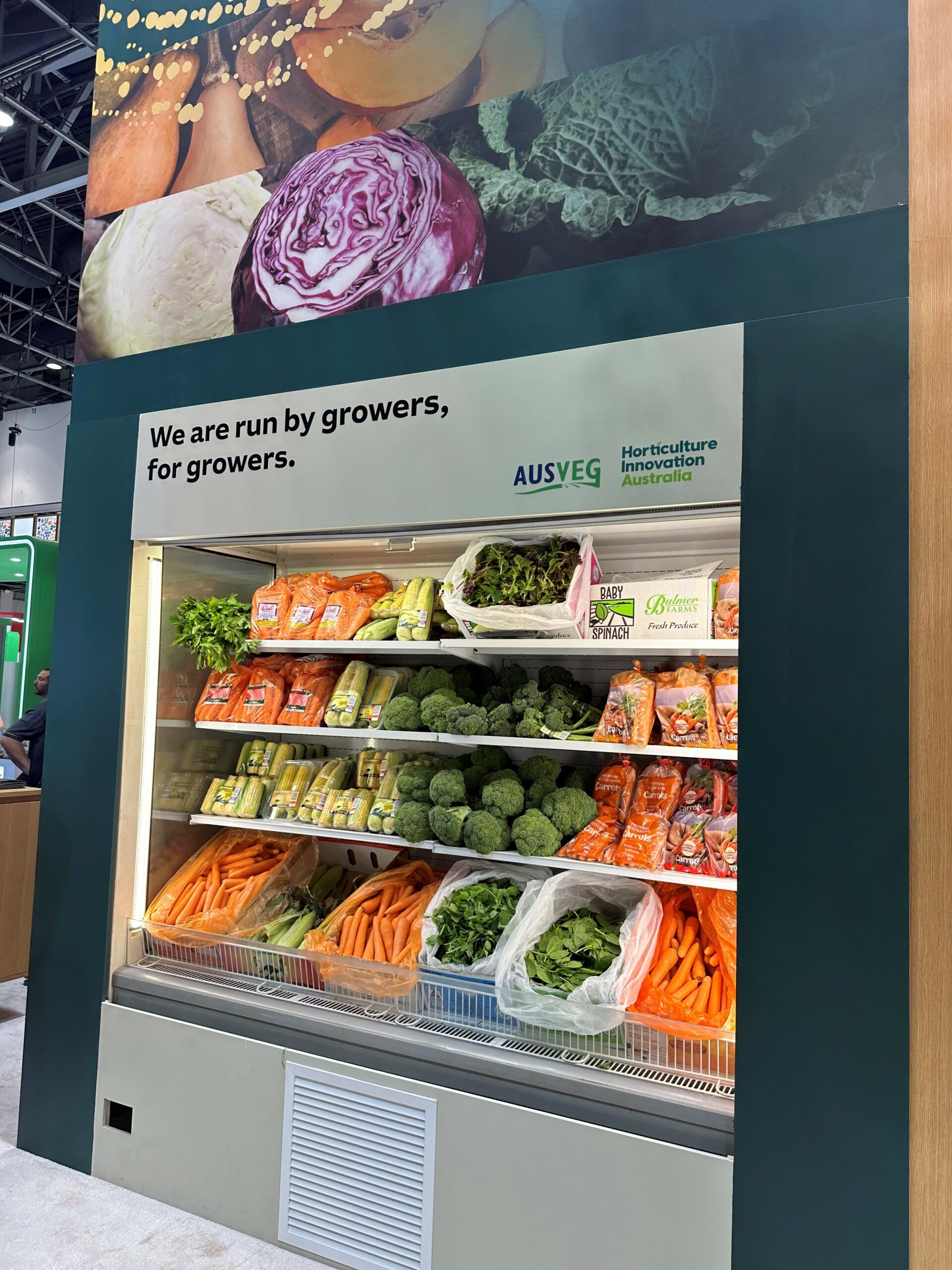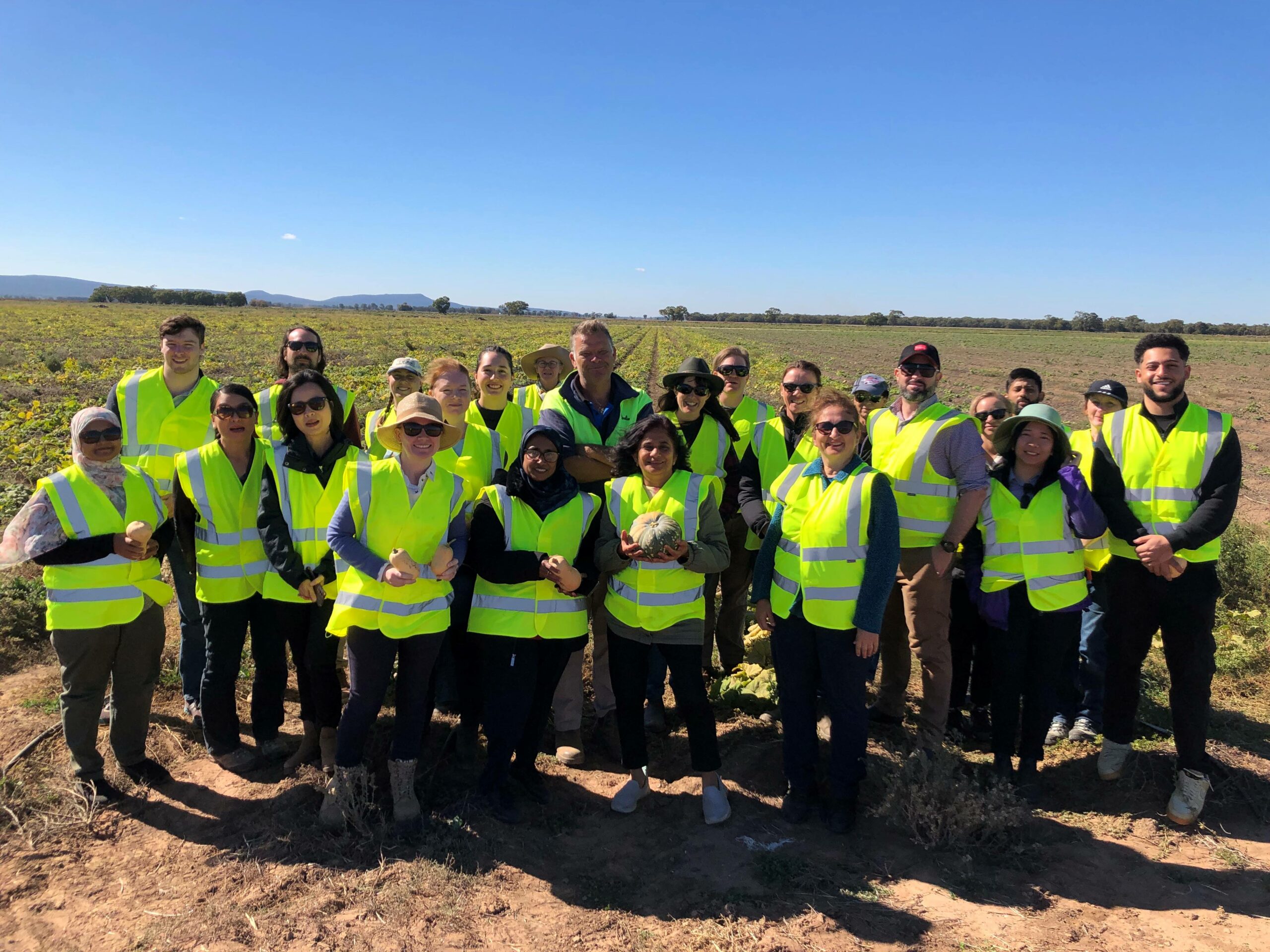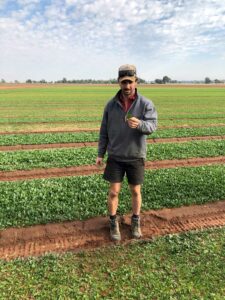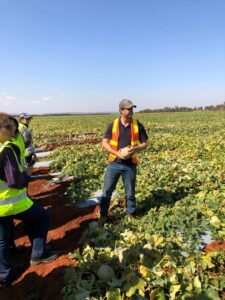
Federal Budget 2024 special
15 May 2024
2024 International Trade Development Activities
24 May 2024By Zarmeen Hassan, National Manager, Engagement and Extension
“Call us and test if the policy will work on-ground”. Welcoming words from growers that hosted teams from the Department of Agriculture Fisheries and Forestry (DAFF) during March and April.
AUSVEG facilitated visits of DAFF representatives to vegetable, potato and onion farms with an intent to support policy makers and regulators to better understand the space they regulate to enable impactful policies for a resilient and robust industry.
These farm visits continue to be a key stakeholder engagement tool for both sides of the equation – both farmers and government. It builds bridges and breaks down barriers between two critical sides of food production. The revival of such visits after Covid gave DAFF the opportunity to show extremely strong commitment and a very high level of interest. Chris Percival, A/g Director for Biosecurity Plant and Science Services Division | Plant Systems and Strategies | Content Change Team with DAFF led the tours on behalf of DAFF says that these tours are always oversubscribed with a great desire from DAFF staff to be out on farm, engage with farmers, and to understand farming systems. For AUSVEG and the industry, it’s an opportunity to showcase the spectacular work that our farmers do. To show policy makers, the literal blood, sweat and tears it takes to bring food to the Australian and global public and critically, the real impact that policies have.
And on a sombre note, the struggles that face our industry every day with 37% of vegetable growers surveyed recently said that they were looking at getting out of the industry because “it’s just too hard”.
Watching the interactions and reactions of DAFF representatives across a range of functions diverse experiences, interact with the farm, the soil, the farmers, has iterated the importance of these visits. For the majority of the representatives, it was the first time that they have had the opportunity to visit a farm and meet a farmer. From an industry perspective, policy makers understanding farming and visiting a farm at a nascent stage of a career journey should be a critical component of an onboarding process to build more impactful policy.
The diversity of farming operations was a key standout for the DAFF representatives. We had the privilege to show them intensive cropping operations of leafy vegetables and brassicas in Werribee, Victoria and protected cropping and vast farming operations in Mornington, Victoria as well as potato cropping, carrots, spinach and cucurbits through NSW and the Riverina region. Catherine Velisha of Velisha farms, John Said from Fresh Select and Joseph Fragapane of Fragapane farms, with their teams, hosted the tours, showing not only their farming operations, but importantly their innovations.
The critical nature of innovation in managing waste and having non-farming incomes shone through with the value-add of vegetable powders and vegetable chips processing facility at Fresh Select and the pristine nursery operations of GroLink by Fragapane farms.
Veg Education by Velisha Farms took them on a joyous journey of understanding where their food comes from – one specifically designed for education of school children visiting farms, in an effort to get them to eat more vegetables, but also to appreciate how food is produced. And to appreciate the two-legged carrot along with the one legged one, to reduce food waste.
The staggering level of on-farm food waste is probably the one thing that left the DAFF team most perplexed. Perfectly nutritious and edible food is not accepted by the supply chain because it does not look perfect. This food has the same inputs invested into it creating income loss, wasted inputs and above all, wasted food. As a result, Australia wastes approximately 2.6 million tonnes of food annually.
DAFF staff learned firsthand about soil health, environmental sustainability, regenerative agriculture and different farming systems. Especially by Garry Kadwell of Kadwell & Co potatoes who has given 40 per cent of his land back to the environment, by developing tree corridors, native vegetation and watering holes. All while maintaining his yields. And developing a delicious heirloom potatoes product line!
It was an opportunity to showcase the commitment by AUSVEG in action to DAFF and demonstrate to farmers how simple measures can help protect pest and disease from entering a farm. Our mobile foot baths ensured that we all came in clean to every farm and left with a harvest of abundant knowledge of farming by the caretakers of the land!
Thank you to the following farmers that graciously hosted the team:
- John Said – Fresh Select
- Catherine Velisha, Jodie Calwell, Mark Pullin – Veg Education, Velisha Farms
- Joseph Fragapane – Fragapane Farms
- Peter Smith, Jo Van Niekerk – Boomaroo nurseries
- Rick Butler – Butler Market Gardens
- Paul Gazzola – Gazzola Farms
- Russel Lamattina – A&G Lamattina & Sons
- Garry Kadwell – Kadwell & co potatoes
- Brendan Cox – Harvest Moon
- Fernando Rombola – Rombola Family Farms
- Gary Snaidero- Rinaland
This article first appeared in Australian Grower Winter 2024 magazine
Industry science and extension projects are funded by Hort Innovation using the vegetable and onion industry research and development levies and contributions from the Australian Government.
Project Numbers: VN21000, VG22004, VG21000



